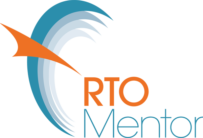So often I am asked the question about industry experience for the VET professional.
Industry experience has always been part of the AQTF and now it is also part of the ASQA requirements.
So what does it really mean?
Will Post Graduate studies cut the mustard, or business Consulting, working within the industry before you started training and assessment, or working in industry part-time whilst working as a trainer and assessor.
In basic terms it means every trainer must have relevant experience in the industry they are training – down to the unit of competence level (e.g. for train driving the trainer must actually work a train for a certain amount of hours per year) as well as having current experience in the training industry.
You will find that where you are registered under ASQA or AQTF (State Authorities) the auditors advise that industry experience involves working in the industry and doing the tasks that are in your training package. Recency has not been given a definition, however in the past 2-3 years is expected.
This means that if you had experience in the industry, then you became a trainer and assessor for the past 5 years, and you haven’t been back to industry since, then it could be argued that you don’t have current industry experience. When people commence their initial registration it is often easier to show recent activity, however as you progress as an RTO you are still bound to remain up-to date.
Now I am not saying this is an easy task to manage your Trainers and Assessors and their work experience. This issue is ongoing regardless of the industry sector & the perceptions of just what industry currency means in the RTO world. In Enterprise RTOs, it is often easier done than Private RTOs as you can ensure that your staff go and work for a couple days/ weeks within another business section. As an RTO Manager or CEO it is also up to you to place the criteria around what your RTO requires from your Trainers and Assessors.
An example of this could look like what the Australian Hospitality Review Panel consider the extent of recent, relevant industry experience and training qualifications the applicant possesses. These include:
- A Certificate IV in Workplace Assessment and Training or equivalent.
- Three years’ recent relevant industry experience in the National Competency Standards applied for. Ideally recent relevant industry experience will include:
- Industry experience within the previous three years,
- Work Experience in more than one enterprise or experience across a range of departments, within one organisation
- Supervisory and/or management experience.
- Familiarity with current industry practices for the industry sector and job function they are training for.
- Understanding of the role of the National Industry Competency Standards, and their use as benchmarks for all assessments that the trainer conducts.
The Queensland Government has done some research on the issue. The below website links to a PDF with their key finding. they also have produced a log layout of capturing the evidence. This can be used within your RTO – remember to put in relevant information for your RTO. www.qsa.qld.edu.au/downloads/senior/train_assess_ind_curr_log.doc

Dear Sir/Madam
I am a VET trainer in Business and I am 62 years of age. I have a Diploma in VET and TAE10 also I have Advance Diploma in Management. I have been teaching in TAFE for computer applications recently and I keep up with the latest technology and laws in business.
I have been working in Business area since 1974 – 2006 on and off. I have been trainer since 2000 in TAFE and 2006 in VET colleges. In the VET colleges I was typing up assessments and RPL for colleges as a Head Trainer.
I want to know how can a person who is a trainer have current industry experience in the last 3 years cover all the areas of modules requirements – that is impossible. Most jobs as a manager have administration assistance to do their work and all manager jobs don’t cover all areas of module requirements.
As far as I am concerned, a trainer should have competencies in all areas of modules with “recent technology and up to date Business Laws” also, they should have examples of how they teach recent technology and business laws to be eligible to teach in business. A good trainer knows how to teach a lot of trainers do not know how to teach even though they have 3 years current industry experience.
I think that the VET industry should look at the trainer firstly as a trainer who can teach and has up to date information and ability in technology and business law as well as previous work experience. I have seen trainers who have recent industry experience who can’t professionally type, put a report together using style commands, table of contents etc. We should be teaching the students practical areas as well as theory areas.
Excellent thoughts Lynnette, sometimes it does seem like the chicken or the egg scenario. A good mapping matrix of your experience to each unit you deliver or assess against will be able to show you, and others, if there are any gaps. Often though, when we actually conduct the excercise, you will find that you have more vocational experience than you realised. I believe the first point of call is to commence the matrix, this will tell you where you need to look at finding additional evidence. Also you, and the RTOs you work with, need to consider the risk of the unit, how much has the technology, law, other requirements or equipment changed in the past 1 year, 3 years, or perhaps 5 years? If it is minimal, then perhaps the risk is lower if you haven’t worked in the industry for that period.